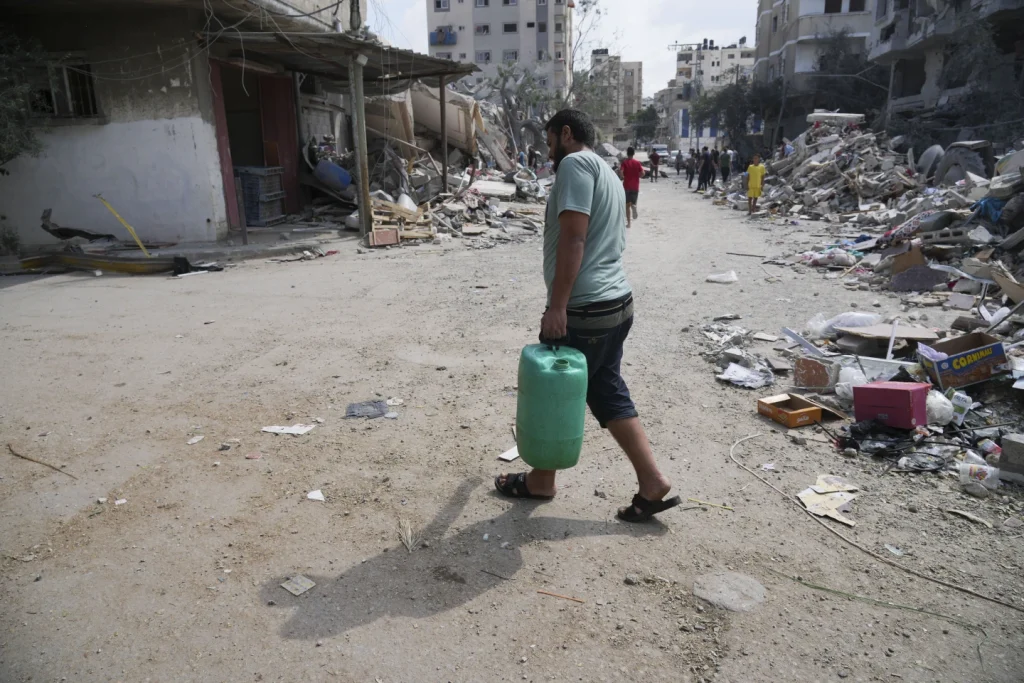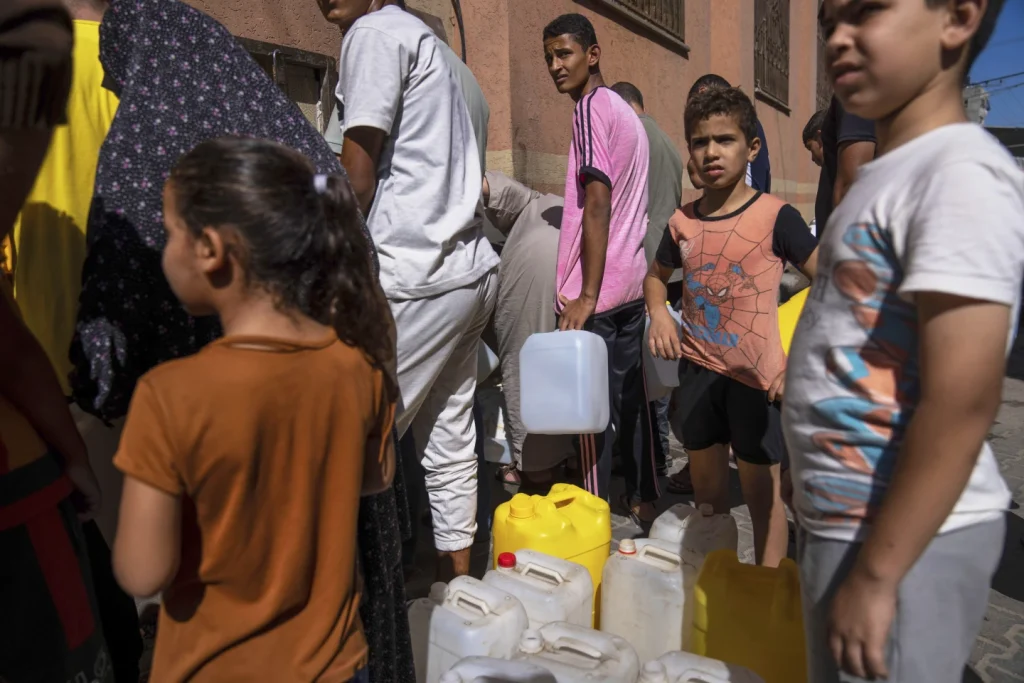The scarcity of clean water in the Gaza Strip has become a pressing issue, prompting serious concerns about the well-being of its inhabitants.
Philippe Lazzarini, the head of the United Nations agency for Palestinians, has expressed his distress, stating that “Gaza is running out of water, and Gaza is running out of life.” Normally, the region relies on a combination of water sources, such as a pipeline from Israel, desalination plants located on the Mediterranean Sea, and wells.
However, these supplies have been severely reduced due to Israel’s decision to cut off water, as well as the fuel and electricity required to operate water and sewage facilities, in response to the Hamas attacks.
The consequences of this water shortage are dire, as it not only affects the basic needs of the population but also poses a significant threat to their health and overall quality of life.
Access to water is a fundamental human right that has been recognized by the United Nations. It is an essential necessity for the survival and well-being of individuals, as the human body requires a constant supply of water to maintain its health.
In fact, water is considered to be of utmost importance, second only to air, in terms of its role in sustaining our overall well-being.
This sentiment is echoed by Dr. Tsion Firew, an emergency physician at Columbia University, who has dedicated her work to addressing water access in humanitarian settings.
Dr. Firew emphasizes the crucial role that water plays in the maintenance of human health, underscoring its significance and the need for universal access to this vital resource.
According to a report released by the U.S. National Academies of Science and Medicine, it has been determined that men require an average daily intake of approximately 3.7 liters, or 125 ounces, of fluids in order to maintain proper hydration levels, while women need about 2.7 liters, or 91 ounces, per day.
This recommended daily fluid intake primarily comes from the consumption of water or other beverages, with approximately 20% of the required amount being obtained through the consumption of food, including fruits.
These findings highlight the importance of maintaining adequate hydration levels for overall health and well-being, as proper hydration is crucial for the optimal functioning of various bodily systems.
By adhering to these recommended fluid intake guidelines, individuals can ensure that their bodies receive the necessary hydration to support essential bodily functions and promote overall wellness.
According to Firew, a renowned expert in the field, it is widely recognized that a significant number of individuals are unable to endure beyond a mere handful of days without access to water.
This is particularly true for the most susceptible segments of society, such as children, the elderly, and those afflicted with various health conditions.
The repercussions of dehydration are manifold, ranging from mild symptoms such as dizziness, fatigue, and confusion, to more severe consequences that can ultimately result in organ failure and even death.
It is therefore imperative that adequate measures are taken to ensure the availability of clean and potable water to all individuals, regardless of their circumstances, in order to safeguard their health and well-being.
Access to clean water is not only essential for sustenance but also plays a critical role in maintaining proper sanitation.
The absence of clean water can have dire consequences, leading to the rapid spread of infections such as cholera and dysentery.
These diarrheal diseases, which can be easily transmitted through the consumption of contaminated water, pose a significant threat to the health and well-being of individuals, particularly children under the age of 5.
In fact, it is alarming to note that diarrheal diseases are the leading cause of death for young children globally.

This highlights the urgent need to prioritize and ensure widespread access to clean and safe water sources to effectively combat the devastating impact of these infections.
Health care settings, such as hospitals and clinics, are of utmost importance when it comes to providing quality medical care to patients who are sick and injured.
One crucial aspect that cannot be overlooked in these settings is the availability of clean water. Clean water plays a pivotal role in various aspects of patient care, ranging from basic hygiene practices to complex medical procedures.
It is essential for handwashing, sterilization of medical equipment, preparation of medications, and maintaining a clean and sanitary environment.
Without access to clean water, health care providers would struggle to deliver safe and effective care, putting patients at risk of infections and other complications.
Therefore, ensuring a reliable supply of clean water in health care settings is paramount to safeguarding the health and well-being of patients.
The dire situation faced by hospitals in the Gaza Strip has reached a critical point, as they grapple with the overwhelming task of providing adequate care to thousands of patients.
Amidst this already challenging circumstance, the World Health Organization (WHO) has raised a pressing concern that further exacerbates the perilous conditions: the severe shortage of water.
This shortage not only hampers the hospitals’ ability to provide essential medical services, but it also poses a significant threat to the lives of those in need of urgent care.
The gravity of this situation cannot be overstated, as it highlights the urgent need for immediate action to address the water crisis and ensure the continued provision of lifesaving medical care in the Gaza Strip.
The World Health Organization (WHO) has emphasized the crucial role of water in maintaining sanitary conditions in healthcare facilities.
According to the WHO, water is a fundamental requirement for ensuring the prevention of hospital-associated infections and outbreaks in hospitals.
Inpatient wards, operation rooms, and emergency departments are critical areas where the availability of clean water is essential to maintain hygienic conditions.
The use of water for hand hygiene, cleaning, sterilization, and other purposes is vital in preventing the spread of infectious diseases in healthcare settings.

The WHO’s statement highlights the significance of water as a vital resource in healthcare and underscores the importance of ensuring its availability and quality to safeguard patients’ health and well-being.
As such, healthcare facilities must prioritize water management and implement measures to ensure that water is safe, accessible, and adequate for their operations.
